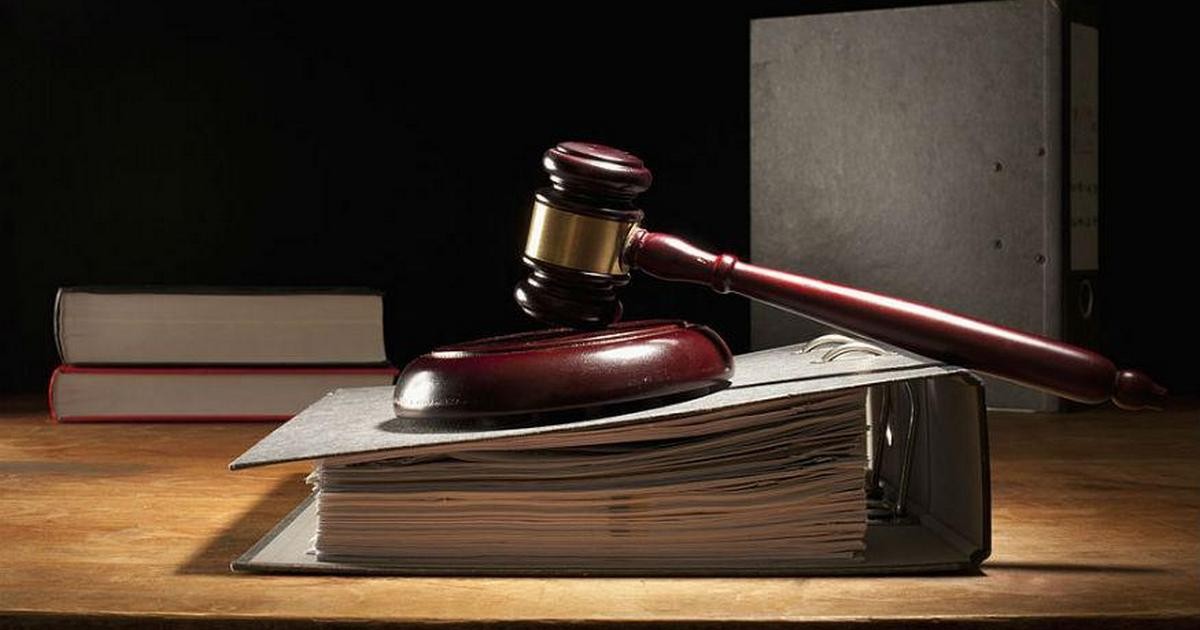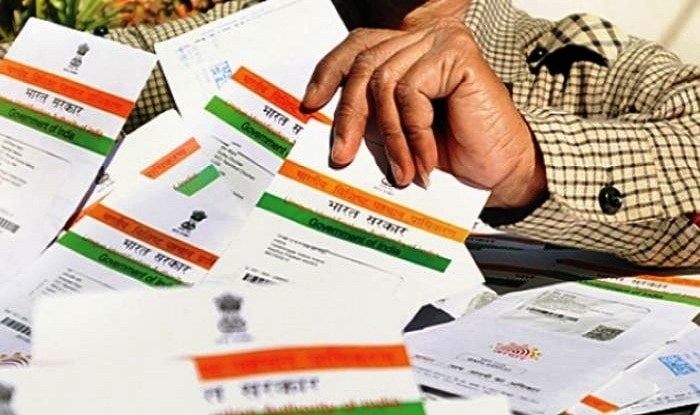
Before coming to the important judgments of 2017, let’s have a look at the current scenario of Indian Judiciary.
Pendency of Cases
According to the most recently available government data, more than 26 million cases are currently pending in our courts across the country. Of these, two million cases have been awaiting justice for a decade or more.
An Indiaspend analysis of available data showed that Indian courts need atleast 12 years to clear the backlog. The disposal rate varies from state to state but in case of Gujarat, it will take nearly 287 years to decide the pending cases.
Former Chief Justice of India T S Thakur had said that courts in the country require more than 70,000 judges to clear the pending cases. TS Thakur’s plea to the Prime Minister Narendra Modi over shortage of judges is flawed.
Do we really need 70,000 judges?
TS Thakur’s claim of 70,000 judges finds its basis in the recommendations made by the Law Commission of India in its 120th Report released in 1987. It states that ratio of judges per million of population should be increased to 50.
The sanctioned strength of Judges and Judicial officers in District and Subordinate Courts stood at 21,320 as on 30.06.2016. Out of these 16,070 posts were filled up as per December 31, 2015. Even if all these vacancies are filled, there are not enough court halls / court rooms available.
Keeping all this aside, 2017 has been a landmark year for the Indian Judiciary system. While some of these judgments helped in re-enforcing our belief in the legal system, others have ignited new debates.
All these judgments are significant in their own manner as some of them come from the apex court and has the final power to interpret the law of the country.
Following is a list of 6 such significant judgments of the year 2017.
1. Right to Privacy as a fundamental right (Justice K.S.Puttaswamy (Retd)& … vs Union Of India & Ors) WRIT PETITION (CIVIL) NO.829 OF 2013.

In this historical judgment, a nine-judge Constitution bench headed by Chief Justice J S Khehar
unanimously declared that the right to privacy is a fundamental right and protected under Article 21 of the Indian Constitution.
Article 21 stipulates that no person shall be deprived of his life or personal liberty, except according to the procedure established by law.
This petition challenged the constitutional validity of government’s Aadhaar push.
More importantly, this enables an Indian citizen to challenge any action of the state which violates their privacy, under the writ jurisdiction.
This was a setback to the government as they had earlier told the court that privacy was a common law right but not a fundamental right.
In addition to this, the court also said that sexual orientation is part of the right to privacy and similarly the right to choose one’s food habits. This certainly has implications on Section 377 of IPC and even the Beef ban.
Section 377 criminalises acts “against the order of nature”, including consensual sex between couples who are from LGTBQI community (lesbian, gay, transgender, bisexual, queer, intersex)
2. Instant Triple Talaq as unconstitutional (Shayara Bano vs Union of India and others) Writ Petition (C) No. 118 of 2016.

The judgment was made in response to seven different petitions filed by Muslim women who faced harassment due to triple talaq. While the lead petition was filed by Shayara Bano in 2016 as her husband divorced her through triple talaq after 15 years of marriage.
Her petition challenged the validity of talaq-e-bidat or Instant triple talaq as they violate the fundamental rights under Articles 14, 15, 21 and 25 of the Indian Constitution.
The Supreme Court bench struck down the practice of Instant triple talaq as unconstitutional by 3:2 majority. The verdict asserted that this practice of Instant talaq is discriminatory for women.
Shayara Bano case is not the first one that brought out the issue of gender discrimination for Muslim women before the court. Another milestone case in Muslim women’s fight for rights has been Shah Bano maintenance case of 1986. This case took note of different personal laws and asserted the need to implement the Uniform civil code.
Relying on this judgment, Muslim Women (Protection of Rights on Marriage) Bill which criminalises Instant triple talaq will be tabled in the Parliament.
3. Nirbhaya Rape case (Mukesh & Anr vs State For Nct Of Delhi & Ors) CRIMINAL APPEAL NOS. 609-610 OF 2017.

Nirbhaya case shook the entire country for its brutal and barbaric nature.
In 430 pages of judgment, the three-judge bench of Supreme Court upheld the death penalty awarded to convicts in Nirbhaya case.
On December 6, 2012, five adults and one juvenile repeatedly raped a 23-year-old physiotherapist in a bus in Delhi before beating the victim and her friend with a metal rod and dumping them on a road. The victim succumbed to her injuries and was dubbed Nirbhaya for fighting till her last breath.
All of the adult convicts were sentenced to death; one of them committed suicide in prison while the juvenile was sentenced to three years in a reformation home.
Supreme Court dismissed the convict’s appeal against the Delhi High Court which confirmed capital punishment awarded by Trial court in 2013.
4. Ram Rahim Case

Gurmeet Ram Rahim Singh, the leader of Dera Sacha Sauda, was found guilty of raping two female devotees in 1999. Singh was sentenced to two consecutive 10 years terms, one for each conviction by a special Central Bureau of Investigation court in Panchkula, Haryana.
Following the conviction of spiritual guru, violent clashes and multiple instances of arson were reported between police and Dera Sacha Sauda followers across Panchkula in Haryana. Around 35 people died and more than 250 people were injured.
The ML Khattar government in Haryana failed to make adequate arrangements and the court lambasted the government for failing to do its duty.
Later on, the Punjab and Haryana High Court ordered the state government to attach the properties of Dera Sacha Sauda for the loss resulted due to violence.
Nirbhaya case shook the entire country for its brutal and barbaric nature.
In 430 pages of judgment, the three-judge bench of Supreme Court upheld the death penalty awarded to convicts in Nirbhaya case.
On December 6, 2012, five adults and one juvenile repeatedly raped a 23-year-old physiotherapist in a bus in Delhi before beating the victim and her friend with a metal rod and dumping them on a road. The victim succumbed to her injuries and was dubbed Nirbhaya for fighting till her last breath.
All of the adult convicts were sentenced to death; one of them committed suicide in prison while the juvenile was sentenced to three years in a reformation home.
Supreme Court dismissed the convict’s appeal against the Delhi High Court which confirmed capital punishment awarded by Trial court in 2013.
4. Ram Rahim Case

Gurmeet Ram Rahim Singh, the leader of Dera Sacha Sauda, was found guilty of raping two female devotees in 1999. Singh was sentenced to two consecutive 10 years terms, one for each conviction by a special Central Bureau of Investigation court in Panchkula, Haryana.
Following the conviction of spiritual guru, violent clashes and multiple instances of arson were reported between police and Dera Sacha Sauda followers across Panchkula in Haryana. Around 35 people died and more than 250 people were injured.
The ML Khattar government in Haryana failed to make adequate arrangements and the court lambasted the government for failing to do its duty.
Later on, the Punjab and Haryana High Court ordered the state government to attach the properties of Dera Sacha Sauda for the loss resulted due to violence.
5. Aarushi Talwar case 
On May 16, 2008, 13-year-old Aarushi Talwar was found dead in her bedroom in her house in Jalvayu
Vihar, Noida. A day later, the family’s domestic help Hemraj who was till now a prime suspect was also found dead on their terrace.
Police first suspected that it is a case of honor killing and hence the parents came under the scanner. Though, there was no evidence to substantiate their claim.
The case was then handed over to the CBI who convicted the parents Rajesh and Nupur Talwar for murder and destruction of evidence and awarded life imprisonment to both.
The couple filed an appeal in Allahabad High Court challenging CBI’s order. The Allahabad High court acquitted the dentist couple after four years in prison.
This mysterious case has evoked public interest and resulted in media trials. Not stopping at that, a book and two movies have been made on the Aarushi Talwar murder case.
6. 2G ‘Scam’

Former Telecom Minister A. Raja was acquitted in the case along with DMK Chief M. Karunanidhi’s daughter Kanimozhi and 15 others. Raja and others were charged for undervaluing of telecom spectrum and he was also accused of accepting a bribe by a telecom operator.
It all started with the CAG report which quantified the scam loss to the tune of Rs. 1.76 crore. The report stated that licenses were allotted to ineligible applicants who had not divulged pertinent information and submitted fictitious documents.
This explosive report dubbed this case as one of the biggest ‘scams’ in the country which ultimately led to UPA’s downfall in 2014 General elections.
Special CBI judge O P Saini, who acquitted former telecom minister A Raja, DMK MP Kanimozhi and others in the case, said the CBI cannot absolve itself of the burden to prove its case by “piggy riding on the so-called high magnitude” of the case and the media hype.


.jpeg)

